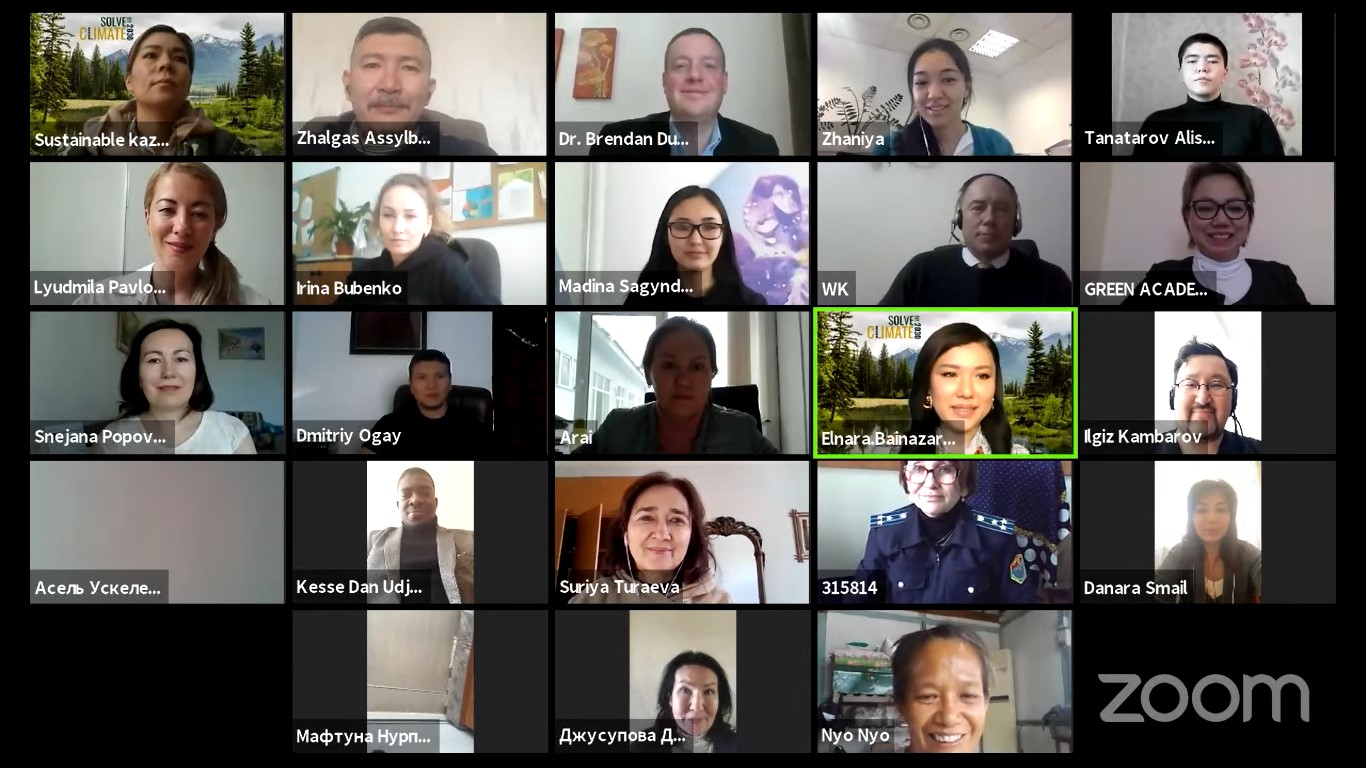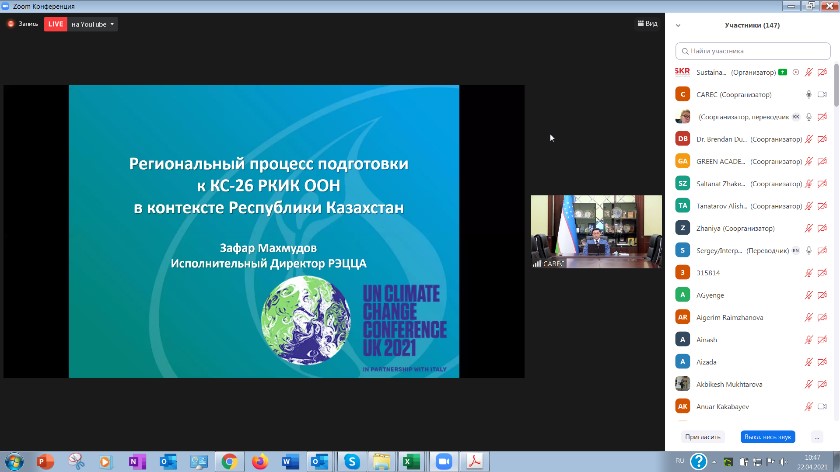
“Climate change adaptation and mitigation activities in Central Asia are underrepresented globally. We need to draw the attention of the global community to the climate change in Central Asia,” Zafar Makhmudov, the Executive Director of the Regional Environmental Center for Central Asia, stated at the webinar “Global Climate Dialog. Climate Solutions for Kazakhstan” on April 22. He noted that the global community is uninformed about the current situation in Central Asia compared to other countries.

Zafar Makhmudov underlined that the Regional Environmental Center for Central Asia (CAREC) is doing purposeful work to increase the visibility of the region globally. CAREC initiated the political dialogue among the national delegations of the Central Asian countries. Its aim is to draw attention of the global community to the climate change impact on Central Asia at the 26th Conference of Parties to the United Nations Framework Convention on Climate Change (UNFCCC COP26). This will be the most important Climate Summit ever since the landmark Paris Agreement was signed at COP 21 in 2015. For this reason, it is very important for Central Asian countries to declare themselves at COP26. The Regional Statement of Central Asian countries to UNFCCC COP26 as well as thematic events within the joint pavilion will help achieve this goal.
At present, the draft of the Regional Statement is prepared on the basis of the numerous online consultations in Kazakhstan, Tajikistan, Turkmenistan, and Uzbekistan. It is planned to be agreed with the countries, as well as to be presented at the Fourth Central Asian Climate Change Conference (CACCC-2021) in Dushanbe on July 26-27, 2021. The Regional Statement of Central Asian countries will draw attention of the global community both to considerable progress in this direction and to challenges including financing, adaptation, and new technologies introduction.
In the context for Kazakhstan, Zafar Makhmudov noted that, among the country's many ambitious goals under the Paris Agreement, the country has taken on the commitment on reduction of greenhouse emission by 15 percent by 2030 from 1990 levels. At the highest level, the intentions are to achieve carbon neutrality by 2060 and to increase the share of renewable energy sources (RES) which will reach 3000 MW by 2025.
The webinar “Global Climate Dialog. Climate Solutions for Kazakhstan” was organized by NJSC “Narxoz University” in partnership with the Delegation of the European Union to Kazakhstan, the Austrian Embassy to Kazakhstan, the United Nations Environment Programme, Office of the United Nations Resident Coordinator in Kazakhstan, the Regional Environmental Center for Central Asia and the REC Green Academy. The event was conducted within the Global Climate Education Initiative “Solve Climate by 2030”. Over 140 representatives of government agencies, international organizations, embassies, academia, youth, and civil society attended the webinar.
